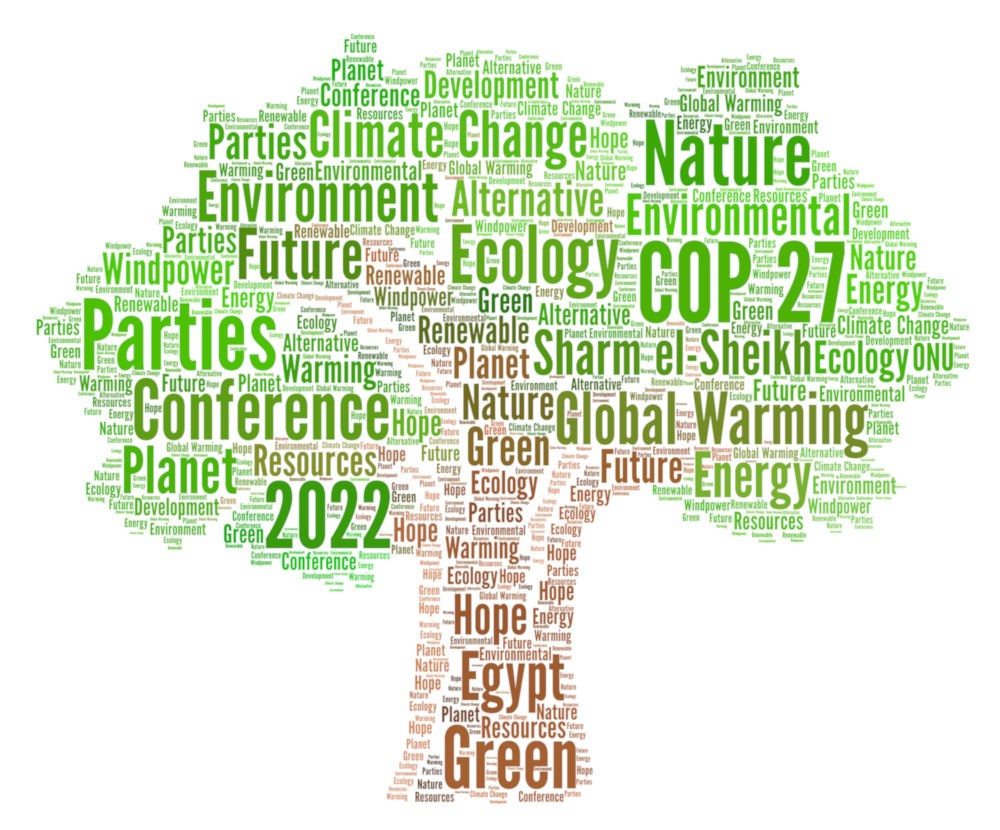COP27: The youth perspective
By Josh Oxby - Posted on 20 December 2022
PhD student Josh Oxby – who is researching the just transition - was involved in COP27 but has some misgivings on how much young people are actually listened to. Here, he gives his perspective on the event.
We all went into COP27 with high hopes of affirmative climate action. Building upon the outputs of COP26 in Glasgow, there was the very real opportunity to phase out hydrocarbon energy production for the sake of our planet’s future. Indeed, as young people, we were all hopeful that policy makers would finally recognise the value in drawing upon our diverse insights and lived experiences; to meaningfully address climate mitigation & adaptation and atone for our (relative) inactions in the Global North by providing substantial funding towards loss and damage for all countries hit by this anthropogenically induced climate disaster.
While ‘we’ certainly made some progress on the climate abatement front, let us not forget the often-overlooked objective of any COP – collaboration.
Young people are treated with overt hypocritical respect in discussions and dialogues, viewed as a ‘tick-box’ requirement as opposed to equals; discriminated against due to our age and perceived lack of experience. In even worse cases, we are tokenised as the faces of youth engagement in politics and private organisations. It was incredibly apparent that this COP was no different.
While instances of ageism, tokenism and youth-washing are not unique, the establishment of the first ever youth pavilion alongside the successful establishment of the United Nations Youth Office (UNGA, 2022) in September gave us all a glimmer of hope. However, it was clear that whilst we had a space at this COP, we didn’t truly have a place.
While we certainly had the facility to engage with each other, the sheer surface area of the conference venue, accompanied by the lack of distinct signposting, ultimately resulted in our space being disassociated and isolated from the majority of the conference. Our value was discredited before we even stepped foot in the venue. However, this was not the main issue which we faced at COP27 as the ‘hub of youth inclusion’ became a vantage point for systemic tokenism. whereby a few senior delegations claimed to outrank us and demanded to use the space for their kudos value.
We didn’t expect to be at the forefront of conference; however, it was resoundingly clear that “our lives were made so much harder because the logistics didn’t make any sense…” as a peer said. Not only was youth funding and sponsorship distinctly absent and/or hard to come by but it was clear that delegations more often than not “said youth but failed to back youth.” This COP - like so many of its predecessors - reaffirmed the compounded disparities that we continue to experience in ‘democratic’ processes and outputs; enabling the dissociation of young people from discussions to snowball before we even made it to Sharm el-Sheikh.
However, there were a few glimmers of hope and progress that can, and should, be taken from this COP:
First, we had a distinct space in the form of the youth pavilion as well as 55 young negotiators from 27 countries. It may not have been everything that we’d have hoped for, but we were, at least, somewhat recognised.
Secondly, not only was the pertinence of the youth agenda finally recognised at a COP, with our own specific themed Youth Day but the International Labour Organisation launched the very first of its kind, “Youth Pact”, which “...aims to close the skills gap for young people in developing countries and target climate vulnerable sectors. Its goals include creating one million green jobs, supporting the greening of one million existing jobs, and helping 10,000 green entrepreneurs.” (ILO, 2022)
Finally, the digital aspect of the conference ensured that we could, in part, account for some of the real voices of youth; the voices, stories and lived experiences of those young people who were unable to travel to the conference.
From my experience working as, and with, youth advocates, delegates and diplomats from around the world, it is easy to forget that there are extreme variances in the levels of professional confidence amongst young people who feel able and willing to stand up and speak freely. Not only are such variances as a direct result of continued overt ageism, youth-washing, and tokenism but in most instances, these variances are as a direct result of the fear of judgement. While of course, young negotiators and delegates have come up against an incredible number of barriers to advocate for the youth of the world, the security and geographical interconnectedness that a digital presence permits, enables us to account for the real voices of all young people.
Not every young person is willing or able to participate on the global stage - but every young person has a voice that has the right to be heard.
My primary objective at this COP was to ensure that young people felt meaningfully represented and heard with a distinct space at the decision-making tables. I’m well aware of my own bias as my experience of speaking on multiple panel sessions and roundtable discussions, bringing my unique Scottish perspective on place-based “just” energy transitions, was a vastly different experience to the majority of my peers who were not afforded such opportunities. However, it was resoundingly clear that our young people have the drive, desire and dedication to do whatever it takes to be involved in all aspects of decision making. They’re tired of the UNFCCC hypocrisy and barriers to engagement. They want to be involved in the change towards substantive co-leadership as valued partners at the decision-making table, and experts in their own lived realities, before climate adaptation, mitigation and abatement become no more than a pipedream of what could have been.
I hope that my experiences and reflections here can inspire one more young person to pick up the mantra and advance the global youth agenda. Whilst this COP was certainly an ‘interesting’ one, we have seen the first visible steps towards a more inclusive and meaningful youth agenda. It only takes one person to make a difference in this generation of solution makers. It takes one person to recognise that young people are not merely just the beneficiaries of climate reforms, but instead, should be deemed as valued partners, leaders and experts across all decision-making processes and efforts. Could that be you? Could you be the change-maker that we need for a truly egalitarian and inclusive future for generations to come?










